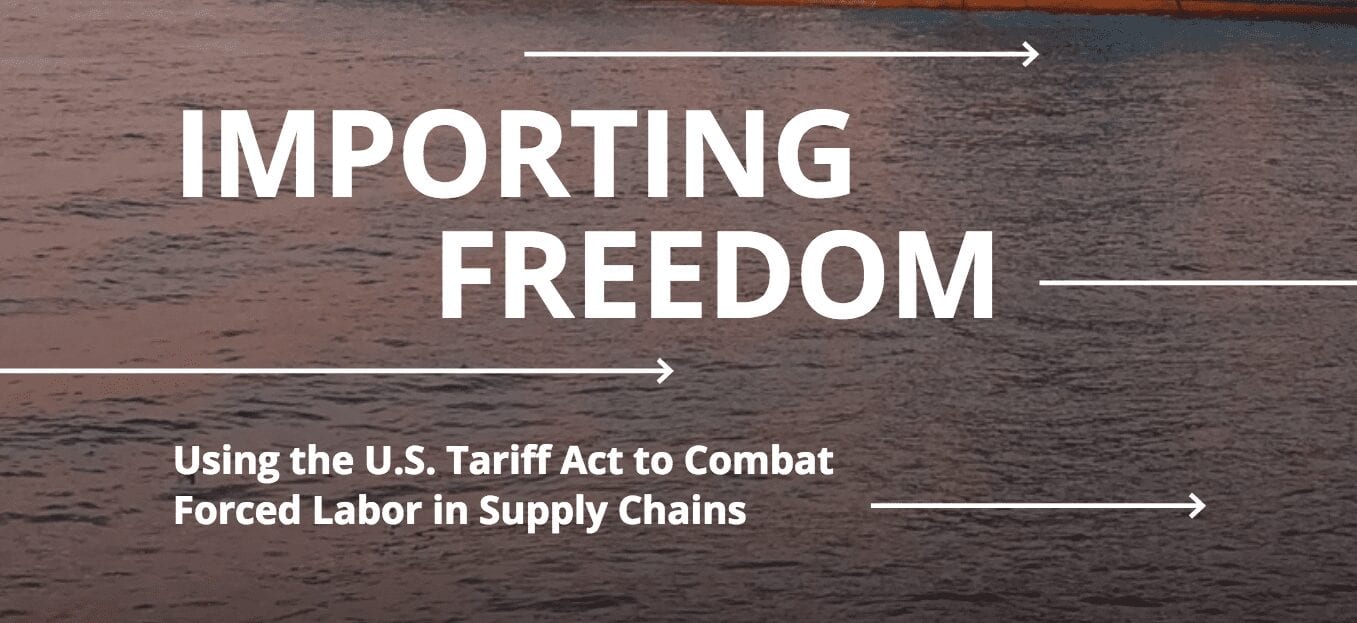
Importing Freedom: Using the U.S. Tariff Act to Combat Forced Labor in Supply Chains
An increasingly interconnected world has led to sprawling supply chains across the globe. But what is the human cost of increasing consumer demands for fresh produce year-round, fast fashion, and flashy gadgets? For those held in forced labor in supply chains, what remedies exist? What can advocates do to hold corporations account-able for human trafficking and forced labor in their supply chains?
As one of the world’s largest importing economies, it is estimated that the United States imports up to $144 billion worth of goods made using forced labor. A few of the most imported at-risk goods include electronics, apparel, cocoa, seafood, timber, and cotton. This guide provides advocates with tools to leverage U.S. trade enforcement mechanisms, specifically the prohibition on imports made using forced labor, to clean up corporate supply chains. This guide is for anyone – U.S. and foreign NGOs, lawyers, labor unions, and individuals – interested in using U.S. trade law and policy to combat forced labor in their countries. The guide provides an overview of the core components of a petition, including the standard of admissibility, types of evidence required, sources of information, and the standard of review. It also includes a suggested submission template and intake questionnaire. It will also guide readers to reliable resources that organizations and individuals can use to strengthen petitions to U.S. Customs and Border Protection.
Read the full report here.
